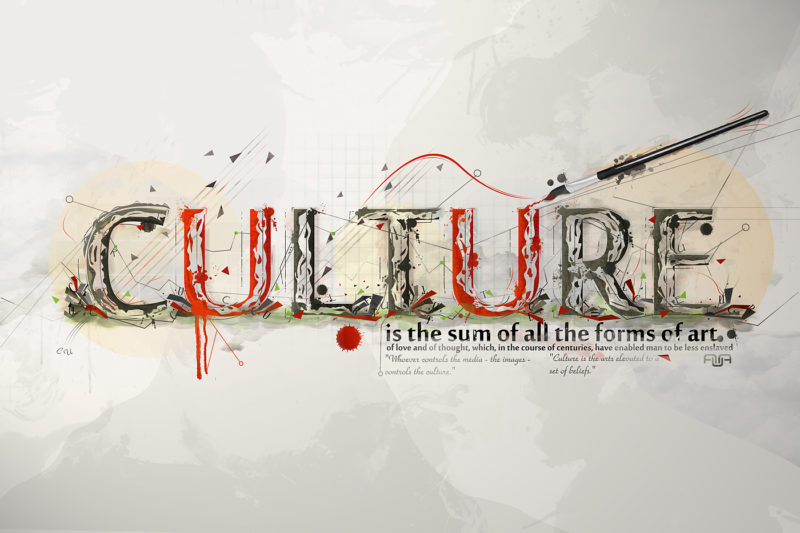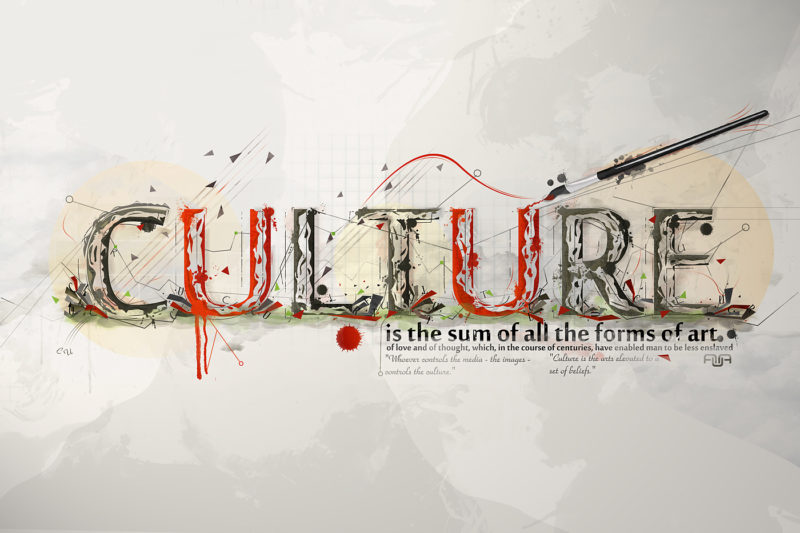
Do you ever get your mind stuck on a topic and then every thing you hear, see, or read seems to be about that topic? I’ve been like that lately on the topic of culture. I go to Barnes and Noble or Borders and pour through books about it. I read articles and posts online about it. I am a sponge when it comes to learning about different perspectives on culture. I am especially interested since I am working in a new organization and still learning about and adapting to the culture.
How important is culture fit in retaining your employees? I don’t think I’m going out on a limb by saying it is a critical component.
An organization’s culture is a mixture of many things:
- Culture is based on the core values that define the way the company does business.
- It is the make up of personalities and behaviors of the employees that are hired.
- It is also the framework within which employees must work in order to be successful.
It is not always easy to pinpoint the culture, but an employee certainly knows when they do not fit within it. It is important for hiring managers to understand their culture and hire employees who will be likely to achieve success within the framework. In the “Can HR Keep Your Secrets?” session at HRevolution, led by Jen McClure and Lisa Rosendahl, there was quite a bit of discussion around culture and who owns it. Jen asserted that HR ultimately owns culture because we are the ones who have some power to influence it. While part of me knows this is true and that in many organizations HR does have the ability to influence culture, is that how it SHOULD be?
Who owns the organization’s culture? In a mature organization, can employees actually shape culture? Give your opinion in the comments.



14 Comments
In my organization, our head of HR is continually reminding us that one of the most important things we can do in HR is be ambassadors of our culture. I don’t know if that means we “own” it as I think culture in an organization has a tendency to take on a life of it’s own. However, I do think we should be actively involved in perpetuating it (if it’s good) or doing what we can to shape it and guide it (if it’s not so good) by the people we hire and what we make acceptable or not acceptable within the organization. One of the most important things I screen for in interviews is that cultural fit.
@JennyJensHR
I think it is difficult to own culture. It is a living, breathing aspect of organizations and with each wave of change (new hires, turn-over, etc..) it starts to change slightly.
However, HR has a role in ensuring that the culture that provides success for individuals in organizations is understood and able to ensure that individuals brought into the organization will be able to be success and thrive under the culture in place.
A lot of the culture (at least in “younger” organization- younger as in newer), the culture is created and needs to be encouraged by the founders. They shape and maintain the culture as long as they are in place. They help develop the core values and stories that will continue to be used year after year once they are no longer involved with the organization.
It is the stories and the core values that HR needs to learn and own not the culture itself.
A great book on this is by Edgar Schien- Organizational Culture and Leadership: http://www.amazon.com/Organizational-Culture-Leadership-J-B-non-Franchise/dp/0787975974/ref=sr_1_1?ie=UTF8&s=books&qid=1273758012&sr=1-1
Trish, good post. I agree that HR has a big influence on culture but I do not agree that HR “owns” it. Ownership of a culture is a shared proposition among all those who influence it. The top management of a company can do more to foster or kill a culture in a manner of minutes than hours or days spent by HR to create a positive one. Seen too many organizations where HR busts their butts to create a culture that is condusive to an organization and then see a CEO or President do one stupid thing to set it back to ground zero.
This is a great area that HR must learn and influence as much as possible.
To put it simply – culture is what is rewarded. It may not start that way – but ultimately that is the yardstick by which it is measured. By definition it is the “shared” (key word) way in which business is done at a company.
You can say your culture is one thing (read about Enron’s mission and values) but ultimately it is reflected in what you reward.
Where it breaks down is just like at Enron – reward one thing – say another. It won’t work.
HR can monitor and guide culture through the various reward, and communications methods.
Being a big culture proponent both in the profession and at my Company – I feel that HR “owns” the culture, but doesn’t run all of it. They handle the rewards side (like Paul @incentintel) stated, but bigger than that HR can develop, shape and define the culture that the Company wants to be.
This is argued by many on many sides, but in the end, culture is a “human” issue because people affect it so much. It makes sense for HR, that is strategic mind you, should be the key keeper.
Steve – I love ya man but I think you’re wrong.
Culture isn’t what HR says it is or what HR wants it to be – culture is what is recognized and rewarded.
What each manager does with their employees – what each employee does with fellow employees IS the culture. HR cannot own it any more than IT owns the bits the flow through the wires connected to computers.
At best – HR can direct the culture through properly aligning reward systems to effort, training, etc. In effect providing router and firewall services.
But in the end – culture is the sum total of the behaviors of the organization.
Culture is “kept” in the little things that every person does every day.
HR can affect culture through the programs that elevate and reward those behaviors.
At the end of the day though – what everyone does is the culture – not what HR says is done (or should be done.)
Or am I picking nits?
I see it this way…. Everyone in the company owns the org culture. HR’s role is to effectively steward it.
@jamiemurphy23
Trish,
Great post and definitely a topic near and dear to my heart. I absolutely agree that culture is mix of what you outlined and more.
As far as who owns it? In my opinion, culture is owned by everyone within the organization. Each has an impact on whether it’s positively sustained or going south. A culture in trouble is one that leadership, management and HR need to work together on to assess why & how this is happening to reset the course and get back to a desired state of business – one that is productive, profitable and fosters an environment conducive of being a great place to work.
Culture is and can be defined by understanding the sum total of all perceptions of those who work within it each day. To that end, it’s heavily influenced by Human Resources, Managers and Executives who hire for fit, lead by example and behave in ways that are consistent with the company’s core values and business strategy (scoped by leadership).
Managers who recognize employees for behavior that fits with values and business strategy (which I think is what Paul is referring to here) is a way to reinforce the desired state. When peer-to-peer recognition begins to occur, then you have an even more powerful formula to sustain a meaningful culture. This is absolutely an area that HR can drive and take ownership for but the success of any program long term depends heavily on the involvement of managers and leadership who need to be responsible for directly influencing the behaviors of their reports (as well as recognition for those behaviors).
Jennifer touches on something really critical as well and that’s ambassadorship. HR definitely has the opportunity both internally and externally to drive this. That said, so does every employee in the company. It’s important to realize though that there’s no such thing as 100% employee “buy-in” to behave in accordance with the culture or the brand (unless your Zappos of course). That’s why it’s so important to consistently hire for fit, lead by example and encourage people to think, speak and behave in ways that lead to positive experiences and deeper trust.
~Charee
oh yeah, it’s really important for retention too 😉
Paul, I agree that culture boils down to what’s consistently rewarded — because what gets rewarded gets repeated, and before you know it, you’ve created a culture.
Culture is also about what is tolerated. For example, if a manager accepts poor performance, employees who show up to staff meetings unmotivated and unprepared, or office bullying, those things come to define the culture — the way things are done, even though everyone knows they’re detrimental.
In both cases — both in what is rewarded and what is tolerated — culture rests in large part with those whose job is to manage the team. An individual contributor can lead by example, and have some influence on the culture, but ultimately I don’t think the culture will rise and remain any higher than the example and leadership of the manager.
What do you think?
Lots of great comments and perspectives all of which are correct. Culture is measured, moved and mugged by leaders, followers, consumers and creators of the organization.
I’d had the distinct pleasure of listening to a CEO share his people story in a keynote for the Oklahoma HR Conference. They have 12,000 employees and $8 Billion in revenue. His talk really resonated with me because it was a little edgy and 100% genuine, hard to find these days and it was the best I’d heard in 20+ years. His message was that they have a mission to always be a “truthful culture”: you do well, we reward you – you do poorly we tell you why and it needs to get better. He also shared that they expect a ton of hard-work from every one of their employees but also feel a complete obligation to take care of these same employees.
Lastly, in his org’s truthful culture he shared that you can under perform for a very long time as long as you’re not an ass-hole to customers or fellow employees. IF you’re a “HI-PO” and an a-hole, they will find you and fire you because that isn’t tolerated.
I guess I would label this the no A-hole competency.
My point being that I can walk into any location they own & operate and feel secure in the fact I’m appreciated and feel like I’m part of the family. Now that is a “cultural”, keep up the great work Chet!
Paul, I agree that culture boils down to what’s consistently rewarded — because what gets rewarded gets repeated, and before you know it, you’ve created a culture.
Culture is also about what is tolerated. For example, if a manager accepts poor performance, employees who show up to staff meetings unmotivated and unprepared, or office bullying, those things come to define the culture — the way things are done, even though everyone knows they’re detrimental.
In both cases — both in what is rewarded and what is tolerated — culture rests in large part with those whose job is to manage the team. An individual contributor can lead by example, and have some influence on the culture, but ultimately I don’t think the culture will rise and remain any higher than the example and leadership of the manager.
What do you think?